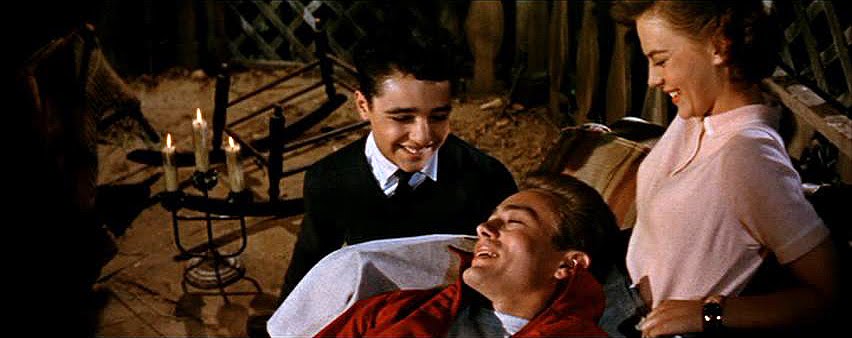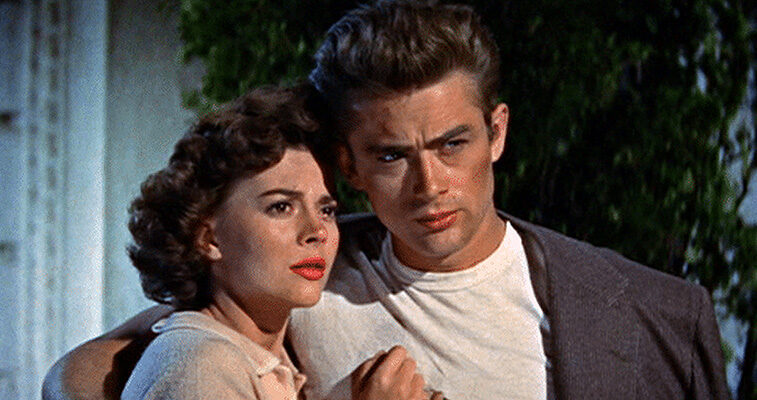[10]
James Dean stars as Jim Stark, an angst-ridden teenager who quarrels with his parents almost as much as he tangles with high school bullies. I normally hate tough guy movies, and I’d normally put teenagers with puffed-out chests in the same group as mobsters — but Rebel Without a Cause doesn’t glorify bravado. The Oscar-nominated screenplay is more concerned about the vulnerable, real person underneath the macho facade. Jim’s ‘rebel’ outbursts come out of despair. He’s forced into violence by the school bullies while his parents trivialize his feelings. He’s got nowhere to turn — nowhere to let it all out — especially when tragedy strikes, taking the life of a rival boy.
And that’s when the interesting part of the story kicks in. Without anyone to hear him or understand him, Jim finds solace with two other confused souls played by Natalie Wood and Sal Mineo (in two Oscar-nominated performances). Together, they form a surrogate family and help each other cope. By playing lover to Natalie and protective big brother (or even father) to Sal, Jim starts to feel a sense of belonging. The film builds to a climactic showdown at an abandoned house in the Hollywood Hills, where the three friends find temporary solace — unaware that both the school bullies and the police are closing in on them for a tragic finale.
Being a gender studies nut, there’s a lot in Rebel Without a Cause that I latch onto. It’s one of the best films ever made that deals with the conflicting messages teenagers (particularly teenaged boys) receive — essentially, ‘don’t be a wimp,’ but ‘don’t get into trouble.’ It’s also interesting for the relationship Jim has with his father (played by Gilligan’s Island‘s Jim Backus), a hen-pecked man who can’t find the strength to be the role model Jim needs him to be. And I also have to commend the movie for peeling back the curtain a little on the relationship between alpha males. Before the film’s centerpiece drag race, you almost get the feeling that Jim and his adversary could be friends. All of this adds dramatic heft and relevancy to a film that may look like it’s marketed to take advantage of newspaper headlines, when it actually probes deeper than an exploitation movie ever would — it looks for answers.
Director Nicholas Ray makes striking use of the film’s super-widescreen framing and composer Leonard Rosenman masterfully blends jazz with romantic Americana in his striking score. These elements may lend to the movie feeling overwrought at times, but if there’s anything more overwrought than adolescence, I don’t know what it is.
Look for a young Dennis Hopper as one of the school bullies.
Oscar Nominations: Best Supporting Actress (Wood), Supporting Actor (Mineo), Motion Picture Story (Ray)


